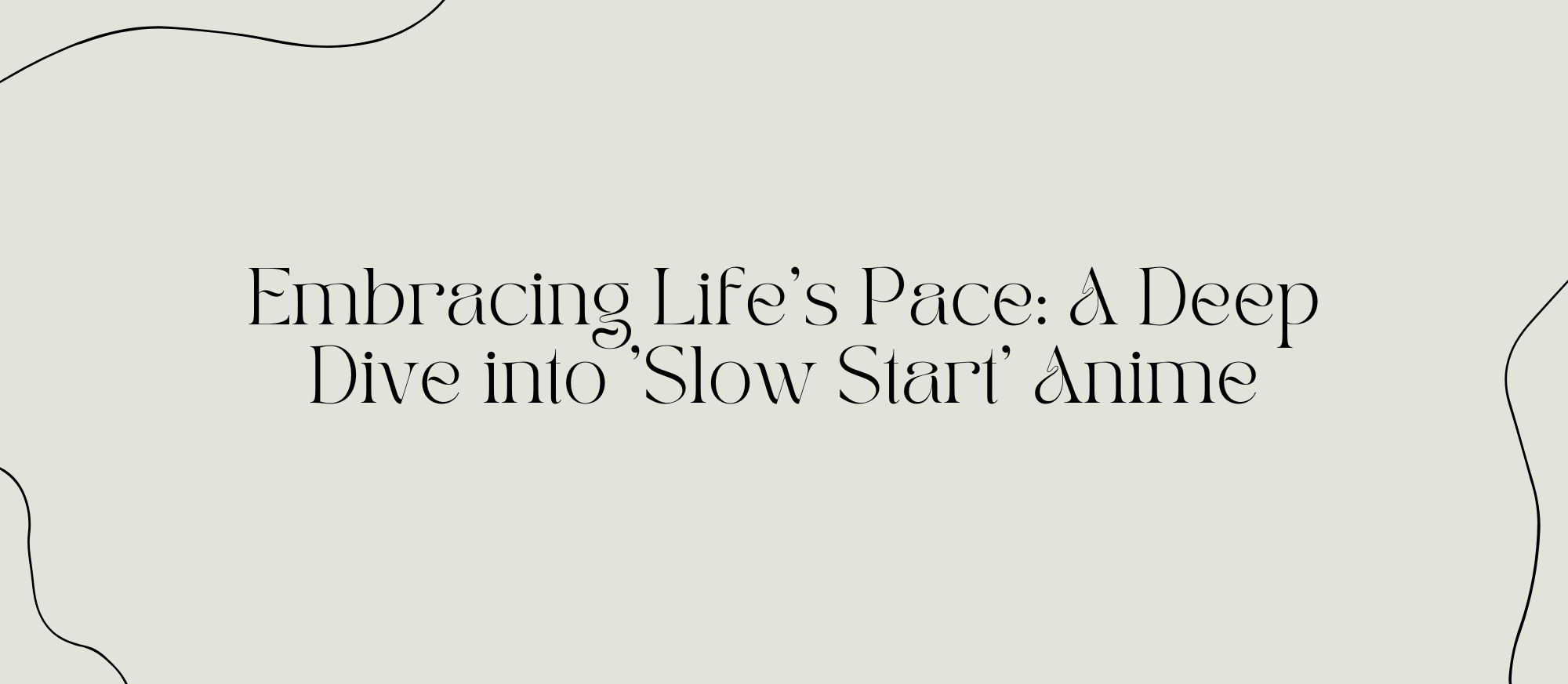Introduction

“Welcome to the haunting yet enthralling universe of ‘Steins;Gate 0,’ the compelling follow-up to the critically acclaimed series, ‘Steins;Gate.’ This sequel plunges viewers deeper into the world of time travel, exploring an alternate reality that branches from one heartrending decision: the failure to save Kurisu Makise. In this darker timeline, we see a different side of the protagonist, Okabe Rintaro, who is overwhelmed by despair and grief after his tragic loss.
‘Steins;Gate 0’ revisits the familiar themes of scientific adventure and the emotional turmoil of messing with time, but it introduces a twist in the tale of Okabe, the eccentric and brilliant scientist. After giving up on saving Kurisu and preventing World War III, Okabe resigns himself to a normal life, suppressing his past identity as a mad scientist. However, the series unravels how his attempts to live a ‘normal’ life are disrupted when he becomes entangled with an AI that replicates Kurisu’s memories.
This alternate timeline narrative does not just serve as a what-if scenario; it delves deep into the psychological impacts of Okabe’s decisions and the consequences they carry for everyone involved. It’s a story that beautifully marries the intricacies of time travel science fiction with intense personal drama, making ‘Steins;Gate 0’ a dark, introspective exploration of fate, regret, and the paths not taken.
Join us as we decode how ‘Steins;Gate 0’ expands the lore of its universe, introducing new characters and complex scientific theories, while redefining the emotional landscape of its characters. The series not only captivates with its high-stakes storytelling but also resonates deeply with anyone who has ever wondered about the roads not traveled. ‘Steins;Gate 0’ offers a unique blend of scientific intrigue and profound narrative depth, setting it apart as a standout continuation of the beloved ‘Steins;Gate’ saga.”
Plot Summary

“Dive into the intricate world of ‘Steins;Gate 0,’ where the boundaries of time travel are pushed to new depths, and the emotional toll of altering fate is explored through the eyes of Okabe Rintaro. In this somber sequel to ‘Steins;Gate,’ we follow Okabe as he grapples with the consequences of his past time-travel endeavors, which have left him a shell of his former vibrant self. The series begins with Okabe attempting to recover from the psychological trauma of failing to save Kurisu Makise, which leads him to abandon his adventurous scientist alter ego in favor of a mundane life as a university student.
However, Okabe’s quiet new world is disrupted when he’s introduced to an AI program that mimics Kurisu’s thoughts and memories. This AI, named Amadeus, is capable of interacting with him just as Kurisu would have, reigniting Okabe’s internal conflicts about the past and his failed attempts to alter it. The inclusion of Amadeus not only serves to challenge Okabe’s resolve but also thrusts him back into the world of science and conspiracy, where he must confront the possibility of diving into yet another complex and dangerous series of time-travel experiments.
Throughout the series, we are introduced to new characters who play pivotal roles in the unfolding drama. Maho Hiyajo, a neuroscience researcher and colleague of Kurisu, becomes a key ally for Okabe. Her connection to Amadeus and her own complex feelings about Kurisu’s legacy bring additional layers to the story, enhancing the narrative’s exploration of memory, grief, and scientific responsibility. Another significant character, Judy Reyes, a professor with her own hidden agenda, introduces further intrigue and complexity, driving the plot forward through new scientific and ethical dilemmas.
As the story progresses, Okabe is forced to confront the harsh realities and potential dangers of manipulating time. The series deftly intertwines these personal struggles with broader existential questions posed by the time-travel technology. Each episode builds upon the last, weaving a dense tapestry of cause and effect, where each decision Okabe makes carries weighty consequences for everyone involved.
‘Steins;Gate 0’ is a profound exploration of the human condition when faced with impossible choices. It challenges the characters and viewers alike to consider the impact of time on relationships and the irreversible nature of certain choices. Through its complex characters and engaging plot, the series not only expands on the beloved world of its predecessor but also stands on its own as a dark, compelling narrative about love, loss, and the relentless quest for knowledge.
Join Okabe as he navigates this labyrinth of timelines, where each twist and turn could lead to new despair or a glimmer of hope. ‘Steins;Gate 0’ is a gripping addition to the sci-fi genre that will leave viewers questioning the very fabric of reality and the moral implications of playing God with time.”
Character Development

“Step back into the complex world of ‘Steins;Gate 0,’ where character development transcends typical storytelling to explore profound themes of grief, responsibility, and the human psyche. This sequel not only revisits familiar faces but also introduces new ones, each bringing depth and intensity to the narrative.
Okabe Rintaro stands at the heart of ‘Steins;Gate 0,’ bearing the brunt of failed time travels and the burden of unresolved grief after the loss of Kurisu Makise. In this series, we see a different Okabe—one who has abandoned his mad scientist persona in an attempt to escape the pain of his past. However, his journey through despair is a poignant portrayal of resilience. Okabe’s interactions with the AI Amadeus, which contains Kurisu’s memories, force him to confront his trauma and spur his re-engagement with the world of science. This reluctant return to his old pursuits is marked by significant personal growth, as he learns to integrate his past experiences with his present actions.
Maho Hiyajo, a new character and a colleague of Kurisu, brings her own unique perspective to the series. Struggling with living in Kurisu’s shadow and her own feelings of inadequacy, Maho’s journey mirrors Okabe’s in many ways. Her determination to understand both the scientific theories Kurisu left behind and her complex feelings about her friend’s legacy contribute significantly to the emotional weight of the series. Maho’s growth is intricately tied to her interactions with Okabe, as they both deal with their shared loss and find solace in pursuing Kurisu’s unfinished work.
The AI Amadeus serves as more than just a technological marvel; it is a pivotal character that drives the narrative forward. Representing both the memory and the absence of Kurisu, Amadeus challenges Okabe’s resolve and forces him to confront the ethical implications of artificial intelligence. The interactions between Okabe and Amadeus are deeply emotional, highlighting themes of memory, identity, and what it means to be human. Through Amadeus, the series explores the boundary between human consciousness and artificial creation, adding a layer of philosophical inquiry to the character dynamics.
As these characters interact and develop, they drive the story of ‘Steins;Gate 0’ towards its intense and emotional conclusions. The series masterfully weaves their personal challenges with the broader themes of time travel and fate, creating a narrative that is both intellectually engaging and deeply moving. Each character’s development is carefully crafted to resonate with the viewer, making their struggles and growth relatable and their triumphs satisfying.
In conclusion, ‘Steins;Gate 0’ offers a rich tapestry of character development, with each key figure contributing uniquely to the series’ depth and complexity. Okabe, Maho, and Amadeus are not just characters in a story; they are profound explorations of grief, duty, and redemption. Their journeys through personal and scientific challenges not only propel the plot but also invite viewers to reflect on the impact of past decisions on future possibilities.”
Themes and Symbolism

“Immerse yourself in the thought-provoking world of ‘Steins;Gate 0,’ a series that masterfully explores the complexities of trauma, determinism, and redemption. Through its intricate narrative and symbolic elements, the show delves into profound philosophical questions, challenging viewers to think beyond the surface of its compelling storyline.
One of the central themes in ‘Steins;Gate 0′ is trauma and its long-lasting effects on individuals. The protagonist, Okabe Rintaro, is depicted grappling with severe psychological trauma following the failed attempt to save Kurisu Makise. His journey illustrates the crippling impact of traumatic experiences and highlights the difficult path toward healing. The series portrays trauma not just as a personal struggle but as a pervasive part of the characters’ lives, influencing their decisions and interactions in profound ways.
Determinism, or the philosophical doctrine that all events, including human actions, are ultimately determined by causes external to the will, is another significant theme explored in ‘Steins;Gate 0.’ The series questions the extent to which characters can control their fates within the constraints of the world lines—a concept central to the show’s time-travel premise. This theme is intricately linked to the characters’ efforts to navigate and alter their destinies, providing a rich ground for examining the tensions between free will and predestination.
The quest for redemption is vividly portrayed through Okabe’s relentless pursuit to rectify his past failures. This theme is deeply interwoven with the show’s narrative structure, driving the plot forward as Okabe seeks to reconcile his actions with their outcomes. His journey highlights the moral and ethical dilemmas faced when attempting to undo past wrongs, exploring the lengths one might go to achieve a sense of redemption.
Symbolically, ‘Steins;Gate 0’ is rich with visual and narrative elements that enhance its thematic explorations. The divergence meter, a device that measures how far the current world line has deviated from the original, symbolizes the possibility of change and the slim margins between vastly different outcomes. It serves as a constant reminder of the thin line between success and failure in altering time.
Additionally, the concept of ‘world lines’ serves as a powerful metaphor for life’s myriad possibilities and the impact of our choices. Each world line represents a different potential reality, reflecting the philosophical inquiry into alternative outcomes that could result from different actions.
In summary, ‘Steins;Gate 0’ offers a complex and layered exploration of trauma, determinism, and redemption, enriched with symbolism that deepens the narrative’s impact. The series challenges viewers to contemplate the nature of destiny and the power of human agency in shaping it. Through its compelling storytelling and thoughtful symbolism, ‘Steins;Gate 0’ not only entertains but also invites its audience to reflect on the profound themes that resonate through its episodes.”
Artistic Elements and Reception

“Delve into the captivating universe of ‘Steins;Gate 0,’ a series renowned for its meticulous attention to artistic detail and its profound impact on the realms of science fiction and psychological thrillers. This sequel not only continues the intricate narrative of time travel and alternate realities but also enhances the experience with its stellar animation style, character design, and evocative soundtrack.
Artistic Elements: ‘Steins;Gate 0’ stands out for its distinctive animation style that skillfully combines realism with a touch of the abstract, perfectly suiting its complex and layered narrative. The animation quality is consistently high, with fluid motion and detailed expressions that bring the emotional depth of the characters to life. The darker, more somber tones used in this series reflect its serious themes and help set the mood for the intense psychological drama that unfolds.
Character design in ‘Steins;Gate 0’ is particularly noteworthy. Each character’s appearance has been crafted to reflect their personalities and growth throughout the series. For example, Okabe’s more subdued and weary demeanor visually represents his internal struggles and the weight of his past failures. Similarly, the introduction of new characters like Maho Hiyajo, with her distinctive and thoughtful design, adds freshness and depth to the ensemble, enhancing both the visual appeal and the narrative complexity.
The soundtrack of ‘Steins;Gate 0’ is another critical element that significantly enhances the storytelling. Composed with a keen sense of timing and emotional resonance, the music ranges from subtle ambient sounds to sweeping orchestral pieces that effectively underscore the dramatic moments and the overall suspense of the series. Each track is carefully chosen to reflect the shifting tones and themes, driving the narrative forward and deepening the viewer’s emotional connection to the story.
Reception: ‘Steins;Gate 0’ has received widespread acclaim from both audiences and critics, cementing its status within the science fiction genre as a standout series. Fans of the original ‘Steins;Gate’ appreciated the continuity in quality and thematic exploration, while new viewers were drawn into its complex plot and rich character development. Critics have praised the series for its intelligent handling of time-travel concepts and its ability to weave these with deeply personal and psychological elements, making it a compelling watch for those who enjoy cerebral narratives.
The series has particularly resonated with fans of psychological thrillers due to its intense exploration of themes like trauma, destiny, and the human condition. Its ability to maintain suspense and provide thought-provoking twists has been a significant factor in its success. Additionally, ‘Steins;Gate 0’s’ impact on discussions about free will and the ethics of technology in society highlights its relevance and the profound connection it establishes with its audience.
In summary, ‘Steins;Gate 0’ excels in its artistic execution and narrative depth, making it a seminal work in modern anime. Its meticulous blend of animation, character design, and music complements its complex themes and sophisticated storytelling, ensuring that the series not only entertains but also leaves a lasting impact on its viewers. For fans of science fiction and psychological thrillers, ‘Steins;Gate 0’ offers a richly rewarding experience that pushes the boundaries of traditional anime narratives.”








